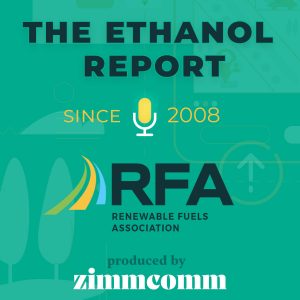 Glacial Lakes Energy (GLE) of South Dakota has joined the partnership with Summit Carbon Solutions to make a clean energy source even more environmentally friendly.
Glacial Lakes Energy (GLE) of South Dakota has joined the partnership with Summit Carbon Solutions to make a clean energy source even more environmentally friendly.
Last week, Summit announced a carbon capture project that will result in an annual reduction of 10 million tons of carbon dioxide or the carbon footprint equivalent of 2 million autos. Glacial Lakes Energy has signed an offtake agreement with Summit to supply the carbon dioxide at its plants located in Huron, Aberdeen, Mina, and Watertown. This partnership will allow over 1.6 million tons of carbon dioxide to be captured, transported, and deposited deep underground through Summit’s transportation and storage platform which originates in Iowa and concludes in North Dakota. Capturing and storing carbon dioxide is viewed as a necessity toward lowering greenhouse gases and fighting climate change.
Glacial Lakes Energy four ethanol biorefineries in Watertown, Huron, Aberdeen, and Mina.


 Former Secretary of Agriculture Tom Vilsack became current secretary under the Biden Administration this week, returning to the job he held for eight years under President Obama. Secretary Vilsack was confirmed by the Senate on Tuesday, sworn in virtually by Vice President Harris on Wednesday, and held his first press call with reporters Thursday morning.
Former Secretary of Agriculture Tom Vilsack became current secretary under the Biden Administration this week, returning to the job he held for eight years under President Obama. Secretary Vilsack was confirmed by the Senate on Tuesday, sworn in virtually by Vice President Harris on Wednesday, and held his first press call with reporters Thursday morning. Ethanol production took a dive last week along with the temperatures as the polar vortex that hit most of the country led to electricity outages, major disruptions in the natural gas market, and transportation issues.
Ethanol production took a dive last week along with the temperatures as the polar vortex that hit most of the country led to electricity outages, major disruptions in the natural gas market, and transportation issues.  The board of
The board of  Pam has been involved in the ethanol industry since 2004. At that time, she was an elected official, serving as a county commissioner in Northeast Nebraska. As such, she created the Dakota County Economic Development Committee. A thorough SWOT analysis of the county led to the genesis of Siouxland Ethanol as an economic development project. Pam became one of the original founders of Siouxland Ethanol, wrote the business plan for the company, and became passionate about the value-added benefits of this clean source of octane. Siouxland Ethanol began as a 50 million gallon dry mill ethanol plant in Jackson, Neb., in 2007 and has expanded to producing more than 90 million gallons of ethanol a year.
Pam has been involved in the ethanol industry since 2004. At that time, she was an elected official, serving as a county commissioner in Northeast Nebraska. As such, she created the Dakota County Economic Development Committee. A thorough SWOT analysis of the county led to the genesis of Siouxland Ethanol as an economic development project. Pam became one of the original founders of Siouxland Ethanol, wrote the business plan for the company, and became passionate about the value-added benefits of this clean source of octane. Siouxland Ethanol began as a 50 million gallon dry mill ethanol plant in Jackson, Neb., in 2007 and has expanded to producing more than 90 million gallons of ethanol a year. Do Low Carbon Fuel Standard (LCFS) policies conflict or complement the Renewable Fuel Standard (RFS)? That was the question Dr. Jarrett Whistance with the
Do Low Carbon Fuel Standard (LCFS) policies conflict or complement the Renewable Fuel Standard (RFS)? That was the question Dr. Jarrett Whistance with the  The
The 
 U.S. Representatives Angie Craig (D-MN) and Dusty Johnson (R-SD) led the Congressional Biofuels Caucus in introducing bipartisan legislation last week to ensure transparency and predictability to the Environmental Protection Agency’s small refinery exemption (SRE) process.
U.S. Representatives Angie Craig (D-MN) and Dusty Johnson (R-SD) led the Congressional Biofuels Caucus in introducing bipartisan legislation last week to ensure transparency and predictability to the Environmental Protection Agency’s small refinery exemption (SRE) process. 
 Biofuels organizations filed comments this week opposing requests from refiners, several state governors, and an environmental organization that the Environmental Protection Agency waive 2019 and 2020 Renewable Fuel Standard volumes.
Biofuels organizations filed comments this week opposing requests from refiners, several state governors, and an environmental organization that the Environmental Protection Agency waive 2019 and 2020 Renewable Fuel Standard volumes.